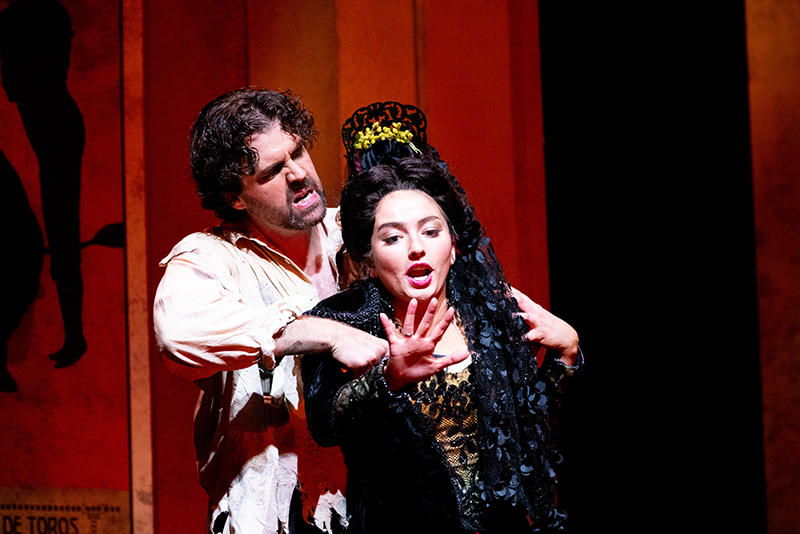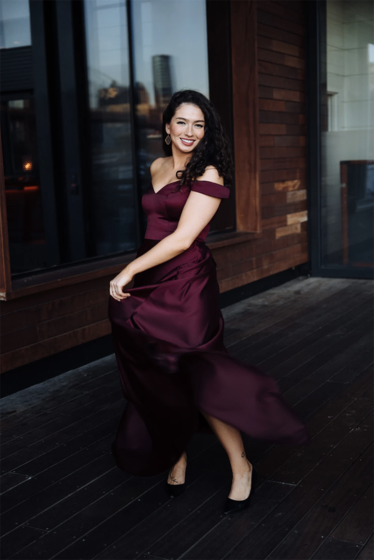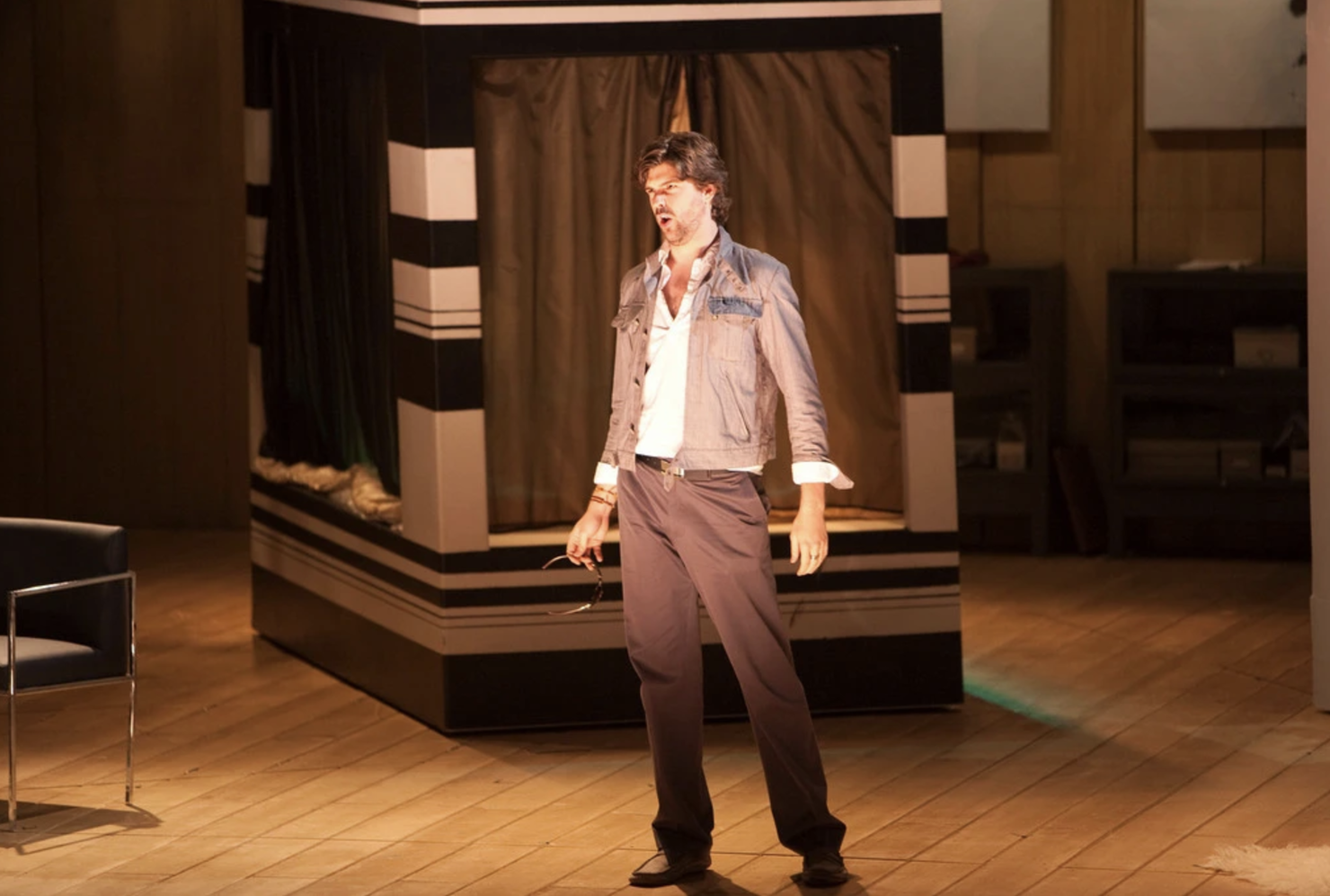In This Story

Get to know the stars of Carmen in the Virginia Opera's production (November 16–17 at the Center for the Arts). Mezzo-soprano Lisa Marie Rogali (Carmen) has been praised by Opera News for her début performance with Minnesota Opera as “a tour de force of diction, precision and pizzazz.” Tenor Zach Borichevsky (Don José) has been lauded in OperaWire as a “masterful tenor" who “delighted and captivated the audience.”
LISA MARIE ROGALI, MEZZO-SOPRANO

Hometown?
Hawley, PA
What makes Carmen a role you wanted to take on?
Carmen is an incredibly exciting role to take on for so many reasons. She’s an iconic character and an extraordinary woman—strong, confident, and unapologetically herself. She's more than just a one-dimensional seductress and I’m loving the process of uncovering the layers that make her so compelling and human. Carmen is a dream role for many, and I feel truly fortunate to step into her shoes for the first time.
A favorite moment in this opera?
One of my favorite moments is in Act 2, after Don José and Carmen are reunited. When he can’t be present with her because he hears the bugle calling him to leave, she responds with a fiery outburst. Her reaction is all or nothing—she's not willing to compromise. I've always been drawn more to the acting side of singing, and Carmen has so many scenes like this that highlight her complexity. So, to answer your question, my favorite part of the opera is when I get to yell at the tenor!
When you have a passionate duet—up close and personal—is it loud for you both onstage? How do you all handle that?
It can be! But that’s what makes it so thrilling. The human voice is incredible, and that raw energy really connects with the audience. As professionals, we know our limits and how to harness that power effectively.
What is another role you aspire to and why?
I would love to perform the role of Cinderella one day—both in Rossini’s La Cenerentola and Massenet’s Cendrillon. I find it particularly meaningful when I can connect with a character on a personal level. Growing up, I had a very humble upbringing and didn’t always have an easy childhood, which makes me feel deeply connected to Cinderella’s story.

ZACH BORICHEVSKY, TENOR
Hometown?
Doylestown, PA
You went to George Washington University… How has your time in D.C. shaped you?
I double majored in music and political science, and I’ve always been intrigued by how we organize our societies. In my opera career, my political interest manifests through a deeper look at the societies in which the stories are set. In Carmen, we have an overtly political tale in that the main characters are (or become) smugglers working against the interest of the state. Carmen herself is a member of the perennially oppressed Roma ethnic group and has to navigate her life through the omnipresent misogyny of the time (which is especially evident when reading the original novella).
Some favorite composers (or works)?
I have to say my big three are pretty unoriginal: Mozart, Verdi, and Puccini. I’m sure it has a lot to do with the fact I’ve been most deeply exposed to their works in my training and career, but it’s hard to listen to anything by any of those guys and not be astounded by their genius. As for a (slightly) lesser known favorite of mine: in this era of Joker and The Penguin, Il tabarro by Puccini is the most heartbreaking villain origin story you could ever ask for.
Other unexpected or surprising items on your music playlists?
With two small children, the playlist is short but on repeat, so we try to make sure that the songs that are on their radar are tolerable for all (no Baby Shark!). Somebody That I Used To Know by Gotye is currently on heavy rotation after an October filled with The Nightmare Before Christmas.
What makes Don José a role you wanted to take on?
The very first opera duet I sang overseas (while a student at GW) was his first big scene with Micaëla. Ever since then, José has been a goal of mine — the part requires real subtlety as well as raw power, and it’s quite a challenge to fulfill both of those to the max in the same evening. And I love a challenge!
A favorite moment in this opera?
It has to be the final scene, which I think is the most complete piece of music drama ever created. The two former lovers’ confrontation contrasted with the thrilled offstage crowd makes for incredible theater.
When you have a passionate duet—up close and personal—is it loud for you both onstage? How do you all handle that?
The hardest opera aurally is La bohème, when both Mimi and Rodolfo do a lot of cuddling while singing as loud as they can. It’s not as much of an issue here in Carmen, but it’s generally much more of a problem for my costars than me, as they’re frequently stuck with their heads right on my chest as I’m singing, and that’s about the loudest place you can be—even more so than in front of the mouth. But either way, since loud passages never last too long, I don’t think opera approaches the danger level of the average pop concert.
What is another role you aspire to and why?
I’d love to expand my French repertoire—I’ve always enjoyed singing in the language, and I’ve only had a chance to sing Roméo and Faust so far. Des Grieux in Manon is something I’d love to tackle, as well as Werther and Hoffmann. My wife just had an enormous success singing all the heroines in Tales of Hoffmann, so that’d be a fun gig to do together!
Watch these acclaimed singers in action:
You can learn more about Carmen by attending the pre-performance discussions with George Mason Dewberry School of Music Professor Richard Leech, 45 minutes prior to both performances on November 16 and 17, and can catch cast members in a post-show Q&A following the Sunday matinee.
